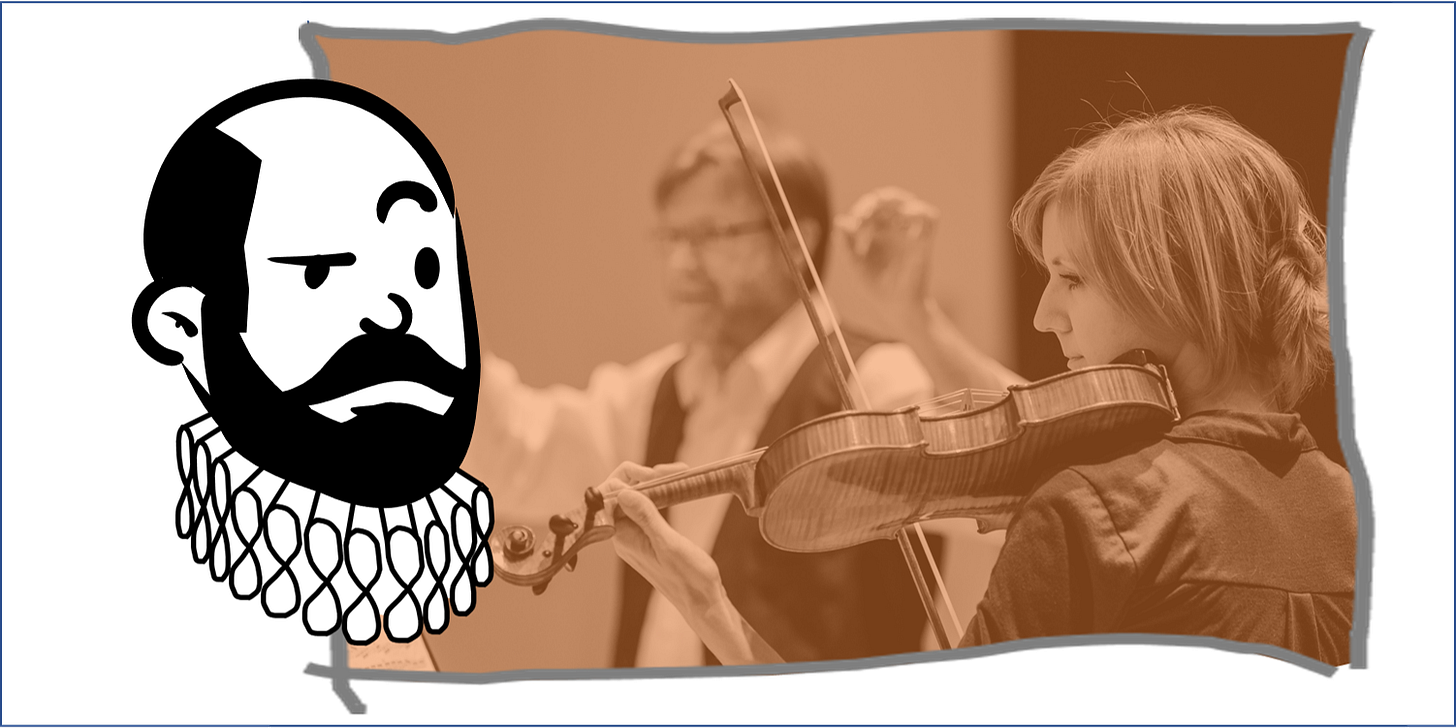Future classics?
Passing on the baton of rock
As a Tudor history buff, I do like to get out and experience the Tudor world. So I was pleased to be able to attend a very entertaining classical music concert a few weeks ago, featuring a counter-tenor singing 16th and 17th century songs in a Tudor-era priory. Then last week I had the opportunity to see a very talented international harpist playing music from the 16th through 19th centuries in beautiful old village church.
Both performers gave illuminating short talks between each piece, covering the historical background, a bit about the composers, and telling us how the songs came to be written. The counter-tenor introduced several of his songs by telling us that although these were the popular pieces of the day, the establishment of the time may have thought them a little risqué. He also pointed out that as we were in a 16th century hall (preserved in all its Tudor glory), there was every chance that the songs we were hearing could actually have been performed in this very place over 400 years ago. It sent a shiver down my spine to think that I was being treated to a very similar experience to the one our Tudor ancestors would have enjoyed – hearing the same music in pretty much the same environment. OK, maybe not my ancestors, as they would have been too busy ploughing fields in Poland at the time – but you get the point.
This then got me thinking.
Surely, if the logic is followed, then the music played today will be the ‘historical classics’ of the future? After all, I remember a DJ joking in the late 1970s when punk was on the rise (and being censured for explicit lyrics), that as Radio 2 was mainly playing the hits of 20 years earlier, then in 20 years time they would be playing ‘classic’ punk as ‘nostalgia’. But sure enough, I do seem to recall Radio 2 giving us the soothing tones of ‘God Save the Queen’ by the Sex Pistols sometime in the Noughties. And given that as I write, Kate Bush is once again running up the hill to the top of the charts, then it does seem to me that what goes round comes round.
But will such music still be played 400 years from now? And if it is, who knows which works will have stood the test of time and how it will be received. After all, if what may have been a bit risqué in the 1580s is now seen as totally establishment, what’s to say the same might not happen in the next 400 years?
Picture, if you will, an audience settling back at a classical concert in the year 2422. The guitars tune up; the drummer gives a few trial beats, then the conductor taps his baton on the music stand and turns to the audience.
“Now this next number was popular in the urban environment of London in the early part of the 21st century,” he’ll say, “and it’s a piece of classic grime. Grime emerged originally as a development of UK Garage, Jungle and Hip-Hop. This song is by one of the leading proponents of the genre, Lethal Bizzle, who was noted mainly as the MC of the More Fire Crew. I invite you now to sit back, relax, and enjoy his outstanding piece, ‘Oi!’
Or maybe it will be other examples of our current musical works that endure? “And now,” our future conductor might say once the Lethal Bizzle song is over and the polite applause has faded away, “our next piece comes from a leading ensemble of the late 20th and early 21st century called ABBA. Of course, much of their work may already be familiar to you, as I believe the ABBA Voyage virtual concert is now booking until 2472, but here is a rarely-heard work from the 1976 album ‘Arrival’, called ‘Dum Dum Diddle’. Listen for the seminal chorus line ‘Dum Dum Diddle, To Be Your Fiddle’ and consider how this has influenced so much of the classical music that subsequently emerged over the next two hundred years. Songs such as ‘De Do Do Do De Da Da Da,’ and of course, ‘Radio Gaga’ are fine early examples of this lyrical genre.”
Or maybe it will be other works that survive – who knows? But if any do, then I hope my distant descendants and classical music buffs appreciate the musical heritage we are handing down.
Lennon and McCartney, anyone?


